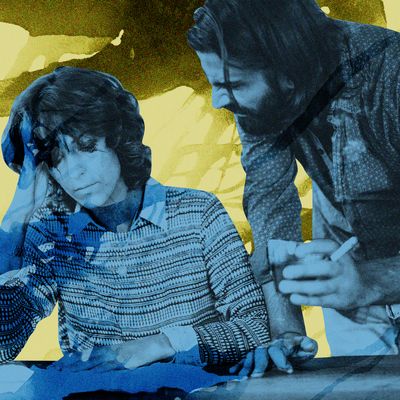
Dear Ana,
I am like Dr. Jekyll and Mr. Hyde when I drink. I get angry and lash out and verbally attack. I have hurt (not physically) SO many people whom I dearly love, and I have permanently damaged many relationships. I have had enough and am ready to quit. (I actually HAVE to quit because my doctor told me that my alcoholism has me on the edge of death.)
I feel near-suicidal guilt for the hurt that I have caused, and I don’t know how to live with it. How do you move forward if there is no way of repairing the damage done?
Sincerely,
I Hate Myself
Dear I Hate Myself,
I have never met anyone in recovery who hasn’t caused pain for someone they love or done what feels like irreparable damage to a relationship. I know I did, many times over.
Like you, I had sobriety somewhat rudely thrust upon me. And I was getting sober to save myself — not to appease those I’d hurt. But saving myself turned out to be the first step to saving everything else.
I sought out people who had gone through what I was going through and they listened when I sobbed out my horrible stories and wailed about the impossibility of redemption. All of them replied with some version of the same thing: “Don’t think about that shit. Just get through today.”
It felt like a dodge to not obsess over what a terrible person I’d been. It felt like not taking responsibility. Luckily, I was so beaten down I couldn’t afford to put too much thought into it. I embraced the reprieve. When memories of some thoughtless binge would steal over me from time to time, a literal shiver of shame would rush down my back — and then I’d chant (sometimes out loud) a mantra my therapist gave me: “Yes, I did that, but that’s not me anymore. Yes, I did that, but that’s not me anymore.”
After a few months, sobriety and emotional distance gave me a new form of clarity: I realized that beating myself up was not, in fact, the same as taking responsibility. All those mornings I’d spent trying to put the previous night together by going through the call logs on my phone — which I couldn’t face without a stiff drink beforehand — that agony was actually the real dodge.
Self-hatred was more comfortable and more familiar than the terrifying prospect of honest appraisal and genuine atonement.
It took a community of other sober people and more than one therapist to help pick my way through my barbed memories: I needed help distinguishing between the amount of shame I felt and the amount of harm I did. Every once in a while, it turned out I had exaggerated my own maliciousness! Amazing.
Then there were times in which my sloppy behavior or the lies I told to cover up that behavior did do serious, lasting damage. I needed to face the person who suffered and ask them what they wanted or needed from me to make things right. An apology? To pay for a thing I’d broken or lost? Follow through on what I didn’t do? Simply admit I had been in the wrong after years of denying it? More than once, if I was connecting over the phone, I had another sober person literally hold my hand through the whole conversation.
Most of the time — seriously, most of the time — the person I wanted to make amends with said something like, “Just stay sober. That’s all I want.” On the other hand, I also had someone tell me that there was nothing I could do to make things better and not to call again. In that case, I have to remember that dwelling in shame won’t do anything but make me feel like having a drink. I have to live with knowing I did what I could.
And then there are the things in my past that are so hurtful that my closest advisers have shepherded me away from even bringing them up with the others involved. Sometimes closure can mean not opening the past back up. Not apologizing is what will allow everyone to move on.
There are also the apologies I have yet to realize (or be informed) that I owe.
I could tell you that the payoff for this work is that we all lived happily ever after. My relationships are all great now! But that would be a lie. Plus, it’s not what I would have wanted to hear when I was in your place, anyway. I wouldn’t have believed it.
The payoff isn’t that everything’s great — it’s doing the work. I still have outstanding emotional debts. I still fuck up relationships in new and exciting ways. But I don’t hate myself anymore, and I will take that trade any day.
You asked, “How do you move forward if there is no way of repairing the damage done?” What I’ve discovered is that I can’t focus on the damage if I’m ever going to move forward. And sometimes, moving forward is the best repair I can do.
More From This Series
- Tom Holland Says He’s Been Sober for Over a Year
- Hear Me Out: Don’t Get Sober on January 1
- Alone and Sober on Thanksgiving

